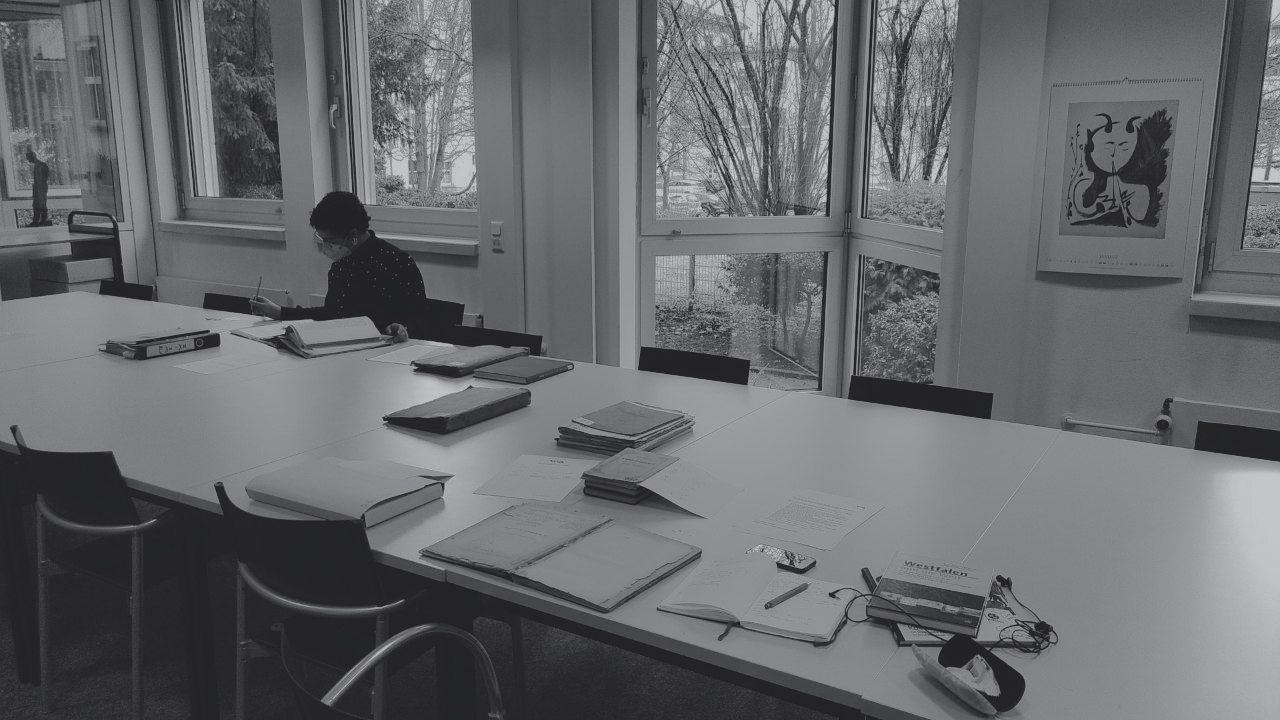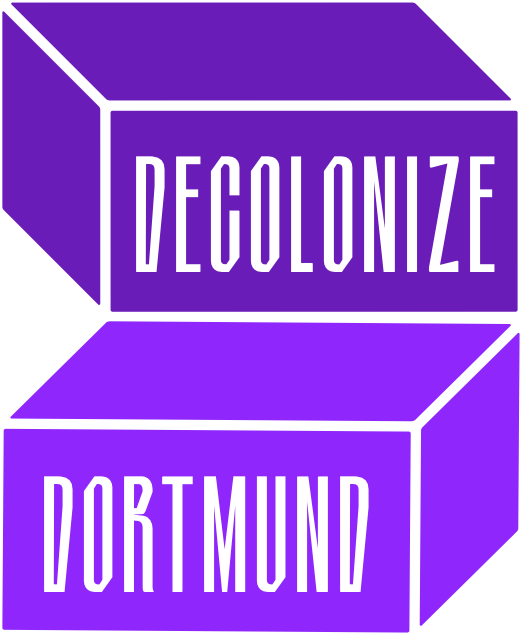
Locations:
Hello! We are the collective Decolonize Dortmund. We have been exploring the colonial past of the city of Dortmund. In this audio walk you will be guided through different stations in Dortmund’s urban space that show how much German colonial history is still anchored in the current infrastructure of modern cities. We do not only want to show a picture of the unprocessed colonial past for the city of Dortmund, but also put it into the context of the political climate and calculations of German politicians, businessmen, missionaries, etc. German colonial history has repercussions that can still be felt today, yet this history is little to not discussed and even denied. As a collective of Black people and people of colour, we want to contribute to making knowledge about contexts and networks of coloniality more accessible for Black people and for people affected by racism. We believe that this knowledge can help us navigate through this society.
Above all, it is important for us to illustrate the colonial violence hidden in the infrastructure of European cities. European cities, and thus also German cities, function as spaces of representation and memory of European history, writes postcolonial urban researcher Noa K. Ha (Ha:2021). This means that in public space, i.e. on streets and squares, the history of a country/continent becomes visible and important people for this history narrative are also honoured here with monuments. In addition, urban space is also the place where a nation and a city present themselves to local people and visitors. Thus, through the city, through streets, architecture, infrastructure and monuments, a story can be told and ideologies that have influenced this story fit in.
Europe’s cities must be placed in the history of colonial and imperial processes, according to Ha (Ha:2021). They are networks of trade, conquest and exploitation. Places of particular importance to colonial visions. Therefore, it is not surprising that many connections to colonial history can be found. This is where our collective comes in. We want to actively dememorise the colonial violence inscribed in urban space, as Noa K. Ha describes it. This means to show this history, to tell it and thus to reduce a reproduction of colonial violence. The stories that are not told are not only worth hearing, they are important for coming to terms with the colonial past. The stations we have chosen are intended to make a small contribution to this. And now for the stations.
Go to the place indicated on the map, start the audio file and let the story sink in. Alternatively, you can make yourself comfortable at home and play the audio files. If you don’t know a term from the text, please check the glossary on our website. Maybe you can find it there. Please note the trigger warnings before listening to the podcast.
We hope you enjoy browsing!
